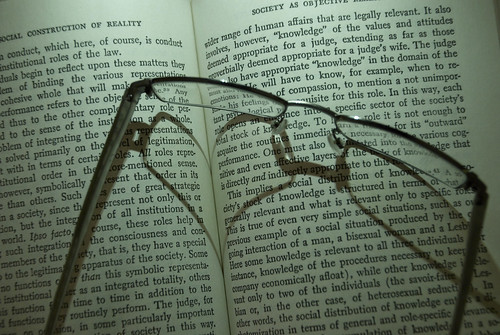 In a recent contribution to ASA Footnotes, Christian Smith explains why it is crucial for sociologists to take religion seriously, arguing that it is imperative for sociologists to overcome ignorance and bias when it comes to religion. Smith writes:
In a recent contribution to ASA Footnotes, Christian Smith explains why it is crucial for sociologists to take religion seriously, arguing that it is imperative for sociologists to overcome ignorance and bias when it comes to religion. Smith writes:
To be clear, what is at stake here has nothing to do with scholars’ personal views about religions, whether for or against. What matters is simply being educated and intelligent about an important part of human social life. The issue is not personal belief but basic professional aptitude and integrity.
We sociologists like to think that we have the hard facts about social life, reliable empirical findings, insights and understanding that ordinary people lack. Common sense, we tell our students, is often wrong—which is true. So why, when it comes to religion, do so many sociologists suddenly stop being sociological and become ideological and ignorant? For some reason, many American sociologists feel free to avow and impart superficial views of religion, as if they were learned, sophisticated, and realistic.
Here are the facts: the social, historical, and moral realities of religions are just as complicated, scrambled, and difficult as every other social practice and institution in human life—both the ones we personally like and the ones we don’t. The truth about religions is complex and challenging. Historically and today, religion involves plenty of good and bad, light and darkness, splendor and evil to go around.
Read the full article here, and for more insights from leading scholars on this topic, see our discussion series Toward a new sociology of religion?.












As someone who utilizes sociological research methodologies from within religious studies I would like to ask an innocent question — how common is the problem Christian Smith identifies? It clearly isn’t a common problem within the sociology of religion as a sub-discipline (in fact I’ve heard avowedly secular sociologists of religion complain about the opposite problem in that context). So I’m curious how often sociologists who do not focus on religion display this kind of ignorance in a professional setting.
One of the reasons why I ask is because Smith only relays one anecdote to support his claim. In the full version of the essay he writes:
With the assistance of Google I tracked down this book review and it appears he has taken the quote out of context. The quote is actually presented as a counterpoint to, but not an argument against, the notion that religious belief is a net benefit to human happiness because it “is a proxy for social interaction and sometimes a spur to useful and noble volunteer work.” What the reviewer was getting at by inserting the counterpoint is that “determining the net gain of religiosity to overall happiness is a remarkably difficult task.” But that’s not what I understood from Smith when I initially read his critique, which even suggests something remarkably similar to what the reviewer actually meant. Smith writes that the “truth about religions is complex and challenging. Historically and today, religion involves plenty of good and bad, light and darkness, splendor and evil to go around.” I couldn’t agree more with Smith about the fact that the quote he reproduced presents a caricature of religion, but what about his own out of context presentation of that quote?
If the answer to my first question is that the problem Smith identifies is as serious as he claims then it would behoove of us all to do a much better job addressing it than he has. The answer simply cannot be caricaturing and misrepresenting the work of others in order to bolster an argument which ironically is itself about not caricaturing and misrepresenting something else.
I also tracked down the review and came to a similar conclusion. Smith’s poorly conceived rant does little more than repeatedly raise the specter of dogma within sociology. He mines that vein until he runs out of ideas, gasping like a two-pack-a-day smoker. Yes, religions are complex, challenging, conceptually ambitious, and a host of other things, but one need not caricature religion to conclude that it has also been complicit in misery and perpetual conflict.